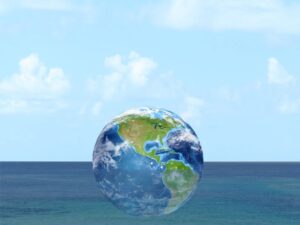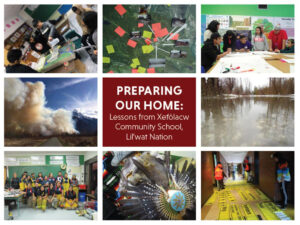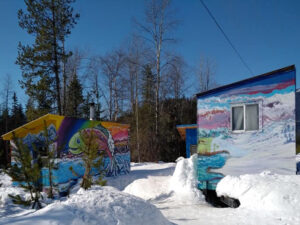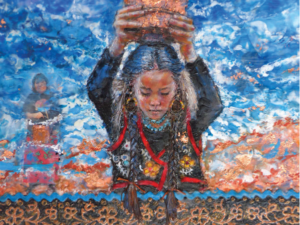Trailblazer: Sheila Watt-Cloutier
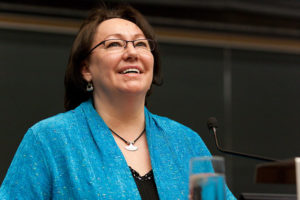
Looking back, Sheila Watt-Cloutier sees connections between her personal struggles as an Inuk girl and her public leadership decades later, addressing the environmental crises that afflicted her people. At the age of ten, when she was sent for schooling away from the familiar people and culture of her Northern community, the trauma was significant for such a young girl. But reading Watt-Cloutier’s reflections in her book The Right To Be Cold, such events, no less than the ecological disasters, become symptoms of the wounds dealt to the North and to the rights of its collective peoples.
In Watt-Cloutier’s telling, the connections become apparent. The curriculum, in the residential school in Churchill, Manitoba that she attended for three years, emphasized what the authorities considered to be useful skills. But “useful” to them often meant something quite different than to people in the North. There, a young man’s ability to prepare a dogsled for hunting on icy terrain and a young woman’s ability to create warm clothing from the skins after the hunt were skills the whole community relied on. The residential school teaching of welding and carpentry to boys and sewing and housekeeping to girls may have been well-intentioned, but it ignored the realities of surviving and living in the unique ecosystem that the Inuit come from. Not to mention what was lost in terms of the character building and the wisdom taught traditionally from the ice and snow.
Unfortunately, that ecosystem itself would soon come under assault, again because decision-makers failed to imagine the impact of their actions on a people far away “at the top of the world”. This became especially clear toward the end of the 20th century, with the discovery of an environmental threat from toxic chemicals known as persistent organic pollutants (POPs). POPs are widely used in manufacturing as well as in controlling pests that harm agriculture or carry diseases such as malaria. Though there is virtually no use for these chemicals in the Arctic, scientists in the 1980s discovered very high levels of them in the marine mammals and in the nursing milk of Inuit women.
No one had set out to harm the Inuit with these chemicals; rather, people and companies generating these chemicals, many of them in far-away countries and regions, simply lacked any notion that the Arctic ecosystem provided perfect storage conditions for these dangerous substances. POPs evaporate in hot climates and are carried by wind currents until they condense again in the coldest parts of the world. There, they accumulate in the air, the water, and the body fat of people and animals that ingest these. Mothers pass the toxins on to their babies, and as those babies grow the chemical impacts can manifest themselves in cancers, organ failure, and neurological problems.
Watt-Cloutier came to the struggle against POPs and the poisoning of the Northern environment at the turn of the millennium. As Canadian President of the Inuit Circumpolar Council, she worked first to raise awareness about the human cost of POPs and then to help negotiate the UN Stockholm Convention, an international legal instrument to ban their use. It was often an emotional campaign because families in the South were as concerned about giving up the DDT that protected their children from malaria as the Inuit mothers were to protect their babies from these toxins.
In 2000, as the negotiations of the Stockholm Convention were wrapping up, Watt-Cloutier became involved in a government-backed international forum, the Arctic Council, collaborating on a research project that provided evidence for annual warming and melting in the Arctic. She remained involved in climate change activism, viewing it through the lens of the human rights of the Inuit. In 2005, she filed a legal petition before the Inter-American Commission on Human Rights (IACHR) alleging the violation of Inuit human rights by practices contributing to climate change.
Though the IACHR ultimately did not hear the “Inuit Legal Petition”, it stands as the first international human rights legal action ever advanced on the basis of climate change. Then again, for Watt-Cloutier, and for the Inuit more generally, degradation of the environment has always directly threatened their rights to life, to remain healthy, and to maintain their unique cultural heritage.





